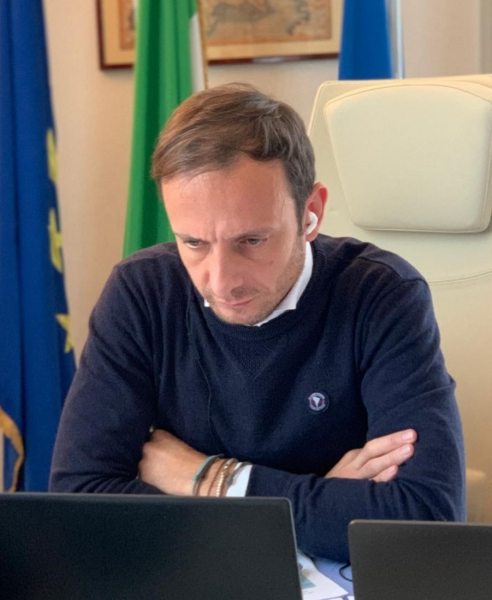
During a plenary session debate on the New Migration and Asylum Pact with the European Commissioner for Home Affairs, Ms Ylva Johansson, ECR Member Massimiliano Fedriga, delivered some key message on ECR's immigration policies.
Mr Fedriga, who serves as President of the Friuli-Venezia Giulia region, outlined ECR's clearly defined priorities on the issue including the need to "protect EU's external border, putting an end to illegal immigration and fighting human trafficking".
He expressed disappointment at the false hope embedded in the title of the proposal of the "New Pact for Asylum and Migration", further explaining that it led to believe "that the Commission had finally received the message of having to make the necessary distinctions between refugees and illegal economic migrants." We thought that "perhaps Europe was finally adopting realism and common sense in terms of immigration" and had understood the clear message of the "need to start working on blocking departures, rather than trying to manage arrivals".
Mr Federiga continued to address Commissioner Johansson by saying that unfortunately this was not the case. In the "new" pact we find the same proposals as before but this time "presented in another guise". We still see quotas for the relocation of migrants this time dressed up as a request for "mandatory solidarity between Member States".
Mr Fedriga gave the example of his own country, Italy – a frontline country struggling to cope with the migration crisis and the inevitable unprecedented pressure attached to it: "we have the impression that the EU is not helping us, only burdening us with new requirements". Specifically, in his region, Friuli Venezia Giulia, Mr Fedriga referred to the constant arrivals of illegal immigrants who, before reaching his region, pass through other European countries. "If we fail to stop these arrivals, we will end up abdicating our role and not being able to guarantee the safety of our citizens."
He feels that his region is "constantly experiencing the impact of wrong choices in terms of European migration policies". The fact that it's a border region exposes it to irregular immigrant arrivals, in particular those from the Balkan Route. However, he highlighted the positive ad-hoc agreements convened with Slovenia, which have enabled them to manage immigration and facilitate returns.
Mr Fedriga underlined the need for investment in third countries to ensure a future in which economic development could potentially discourage and dissuade those willing to undertake dangerous journeys in search of a better future on our continent, but ultimately falling into the hands of traffickers and organised crime. He added that "although mentioned in the proposals, there is no real change of direction as regards the security of the EU's external borders and cooperation with third countries of origin and transit".
Another issue at stake he highlighted are those NGOs, whose only interest is encouraging the indiscriminate entry of illegal immigrants into Europe. “We should implement sanctions for those third countries that do not accept returns and stop financing those NGOs that go against Member States by encouraging illegal immigration".
He urged and appealed to the Commissioner to rethink the measures needed to guard the borders and to control irregular immigration. Mr Fedriga concluded the debate saying "instead of encouraging irregular migrants the EU should help people in third countries to safeguard the most important right, the right not to migrate".
The debate on a New Pact on Migration and Asylum with Commissioner Johansson took place in the framework of the European Committee of the Regions December plenary.

